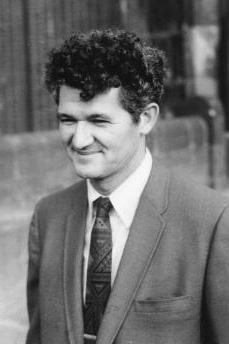Peter Lax is a Hungarian-born American mathematician.
Lax and his family left Hungary for America in 1941, just days before Pearl Harbor. In 1944, Lax was drafted into the Army. He worked on the Manhattan Project, first at Oak Ridge and then at Los Alamos, as a member of the Special Engineer Detachment.
Lax began at Los Alamos as a calculator operator, then proceeded to help with higher-level math. He worked under physicist Robert Serber in the Theoretical Physics Division and on issues of neutron transport with Enrico Fermi (whom he recalls beating in tennis).
After the war, Lax earned a Ph.D. in math and went on to a dazzling career as a mathematician, winning many prizes and making major contributions to the fields of pure and applied mathematics on topics such as scattering theory and shock waves. In 1987, he was awarded the prestigious Wolf Prize in Mathematics. In 2005, he won the Abel Prize, the equivalent of the Nobel Prize for mathematicians.
Lax is currently a Professor in the Department of Mathematics at the Courant Institute of Mathematical Sciences at New York University.





